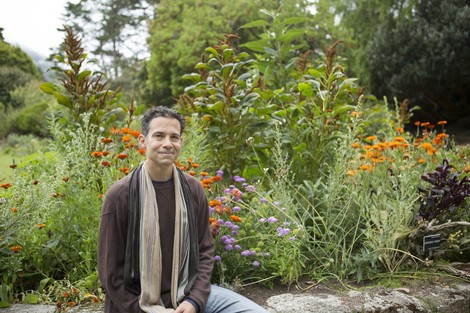Your podcast discovery platform
Curious minds select the most fascinating podcasts from around the world. Discover hand-piqd audio recommendations on your favorite topics.

piqer for: Climate and Environment Globalization and politics Health and Sanity
Mona Silavi is a human and women’s rights activist from the Ahwaz region in Iran. She obtained her bachelor in psychology and specialized in children and adolescence psychology at Damascus University, faculty of psychology and education. She holds a master degree in good governance and human rights in MENA region from Ca’ Foscari University in Venice. She started her activism in Damascus as member of Ahwazi Arab student association. Mona Silavi is a Project Officer at the Unrepresented Nations and Peoples Organization (UNPO) and is the coordinator for topics concerning freedom of religion and belief. She is also a spokesperson of the Al-Ahwaz Democratic Solidarity Party (DSPA). Since 2014 Ms Silavi lives in Belgium as a political refugee
How To Avoid Misunderstanding And Achieve Peaceful Communication
I recommend this podcast for two reasons: firstly, host Dr. Scott Barry Kaufman focuses on human relationships and secondly, the language of the podcast is simple, making the information presented very accessible.
Dr. Oren Jay Sofer speaks about his book and explains what he means when by "A Mindful Approach To Nonviolent Communication“: We can be the best informed, the most skilled artist or best expert in any subject, but if we cannot maintain a healthy relationship with people around us all our knowledge alone cannot keep us happy. We all have needs, which can be physical, emotional or mental, such as the desire to be loved, appreciated or recognized.
How we express our needs is subjected to the process of socialization and most of the time we do not receive proper training on how to fulfill our needs in a healthy manner. This leads to counterproductive behavior in the form of a presentation of our unmet needs.
In this podcast, Kaufman and Sofer talk about Marshall Rosenberg's method of non-violent communication. According to Rosenberg how we think and speak affect how we react to violence. Our socialization teaches us that there are two outcomes for any event: either we win or we lose. In order to win, people may use manipulation, blame or judgment, and those methods may fulfil our short-term needs, but in the long run can cost our relationships their quality, and cause the loss of trust, hatred and loneliness.
Knowing the reason we do things, and understanding the need we want to fulfil can help us change our bad habits. What does the word “need” mean? How long can we go without fulfilling our “needs”? To find out the answer to these questions and to boost your self-awareness, I highly recommend this episode.
